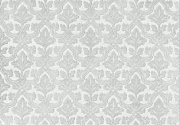Difference between revisions of "Anaglypta"
Jump to navigation
Jump to search
m (Text replace - "== Authority ==" to "== Sources Checked for Data in Record ==") |
|||
| Line 4: | Line 4: | ||
[Crown Decorative Products, England] A registered trademark for a heavy embossed wall covering made of cellulose pulp. Anaglypta paper was invented in 1887 by Thomas J Palmer of Lincrusta-Walton in England. It comes in rolls, like wallpaper, and is used on ceilings and as wainscoting. | [Crown Decorative Products, England] A registered trademark for a heavy embossed wall covering made of cellulose pulp. Anaglypta paper was invented in 1887 by Thomas J Palmer of Lincrusta-Walton in England. It comes in rolls, like wallpaper, and is used on ceilings and as wainscoting. | ||
| − | == | + | == Resources and Citations == |
| − | Anaglypta: [http://www.anaglypta.co.uk/anahome.htm Website] | + | * Anaglypta: [http://www.anaglypta.co.uk/anahome.htm Website] |
| − | |||
| − | |||
* ''Dictionary of Building Preservation'', Ward Bucher, ed., John Wiley & Sons, Inc., New York City, 1996 | * ''Dictionary of Building Preservation'', Ward Bucher, ed., John Wiley & Sons, Inc., New York City, 1996 | ||
Latest revision as of 10:28, 21 July 2020
Description
[Crown Decorative Products, England] A registered trademark for a heavy embossed wall covering made of cellulose pulp. Anaglypta paper was invented in 1887 by Thomas J Palmer of Lincrusta-Walton in England. It comes in rolls, like wallpaper, and is used on ceilings and as wainscoting.
Resources and Citations
- Anaglypta: Website
- Dictionary of Building Preservation, Ward Bucher, ed., John Wiley & Sons, Inc., New York City, 1996
